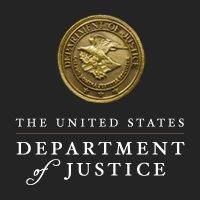Acting Deputy Assistant Attorney General M. Kendall Day of the Criminal Division Delivers Testimony Before the Senate Committee on Banking, Housing and Urban Affairs
WASHINGTON, D.C. – (RealEstateRama) — Chairman Crapo, ranking member Brown and members of the Committee, thank you for the opportunity to discuss our nation’s anti-money laundering laws, including the Bank Secrecy Act.
The Department of Justice draws upon the resources and expertise of various components to combat money laundering, including the Criminal Division’s Money Laundering and Asset Recovery Section, the U.S. Attorney’s Offices, the FBI, the Drug Enforcement Administration, and other prosecution and investigating components and agencies. We work with partners across the country and around the globe to pursue complex, sensitive, multi-district, and international money laundering and asset recovery investigations and cases. We devote significant resources to this problem because money laundering facilitates some of the most serious threats to our safety and security.

Transnational criminal organizations, kleptocrats, cybercriminal groups, terrorists, drug cartels and alien smugglers alike must find ways to disguise and use their illicit proceeds. Money laundering — which best estimates peg at more than $2 trillion annually — is a global problem, but the threat it poses to the United States is acute and specific. Here, we enjoy some of the deepest, most liquid and most stable markets in the world. Those features of the U.S. financial system attract legitimate trade and investment, foster economic development, and promote confidence in our markets and in our government. Those advantages to our financial system – transparency, liquidity and stability – also attract criminals. Through vigorous anti-money laundering enforcement, we protect those hallmarks of our financial system, and we safeguard our citizens from the harms wrought by the underlying criminal conduct.
Unfortunately, however, criminals frequently seek to thwart or evade our efforts by exploiting gaps and vulnerabilities in the existing laws and regulations. As you are aware, the pervasive use of front companies, shell companies, nominees, and other means to conceal the beneficial owners of assets is one of the great loopholes in this country’s anti-money laundering regime. We consistently see bad actors using these entities to disguise the ownership of the dirty money derived from criminal conduct.
The Bank Secrecy Act imposes a range of obligations on financial institutions, including reporting suspicious activity, performing customer due diligence, preventing transactions that involve the proceeds of crimes, and establishing effective anti-money laundering programs. These requirements play a critical role in the fight against criminal activity. Effectively, these requirements mean that financial institutions are often the front line in our nation’s efforts to prevent and detect money laundering. Ensuring the ability of financial institutions to detect, investigate, and report illicit financial activity is of critical importance in the U.S. government’s fight to combat money laundering and prevent terrorist financing.
Compliance with the Bank Secrecy Act is fundamental to protecting the security of financial institutions and the integrity of the financial system as a whole. In most cases, financial institutions seek to do the right thing – implementing effective anti-money laundering (AML) programs to detect and prevent money laundering through the U.S. financial system. In some cases, however, financial institutions have willfully failed to implement effective AML programs, or failed to document suspicious transactions. In recent years, the Department of Justice has resolved numerous AML and sanctions-based violations with major financial institutions, demonstrating that institutions still struggle to create and incentivize effective AML and sanctions compliance programs.
The effectiveness of our current anti-money laundering regime merits continued discussion among law enforcement, industry and Congress, as we strive to detect, target and disrupt illicit financial networks that threaten our country. I am pleased to be with you talking about these important issues, and I thank the Committee for holding this hearing today to bring attention to the threat that money laundering poses to both our financial system and our national security.
I look forward to any questions you may have. Thank you.















